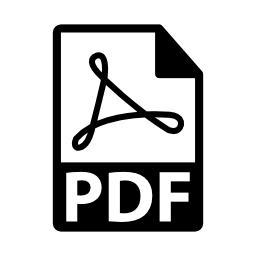August/September 2024 (vol. 21/2)
ContentsFeaturesNewsLegal
NewsResearch DigestResearch PlusCPD
 PERSONAL LEARNING ZONE
PERSONAL LEARNING ZONE
Summary:
FEATURED ARTICLE
This issue of Occupational Health [at Work] features a Personal Learning Zone (PLZ) article recommended for continuing professional development (CPD). The assignment questions, ‘Personal learning statement’ and ‘Certificate of engagement’ are available to subscribers at ohaw.co/AWPcpd. These will also be stored in your password-protected PLZ. The PLZ will help you document your own CPD. Occupational health physicians and nurses, occupational hygienists and other professionals can use the resource in support of their specialism’s revalidation or CPD requirements.
Pages 29–32. Dyslexia and work. Dyslexia is a form of neurodiversity that brings both strengths and weaknesses. A formal diagnosis can help in obtaining support at work. Relatively simple, inexpensive workplace adjustments can often be very effective in addressing barriers faced by individuals, although specialist assessment may be needed to identify appropriate modifications in some cases.
ADDITIONAL CPD
The following articles, news and research items are suggested reading for CPD and professional revalidation. Subscribers can complete their online Personal Learning Zone CPD record at ohaw.co/AWPcpd
Pages 06. One quarter of the UK workforce experienced conflict at work in the past year. Workers experiencing conflict were more likely to report negative impacts on their mental and physical health than those who did not.
Pages 10. The Employment Appeal Tribunal in Anderson v CAE Crewing Services Ltd has considered whether an independent doctor – in this case an aviation medical examiner – is acting as an ‘agent’ of an employer as regards liability under the Equality Act 2010.
Pages 16-18. A framework approach, prioritising self-care, proactive support on tasks from co-worker groups, ongoing workplace adjustments, flexible working and supportive absence management policies, can help workers with long COVID stay in work.
Pages 36-38. Occupational health professionals can be called on to give evidence in court, either as witnesses of fact if, for example, they have been involved in the occupational health consultation and provided a report to the employer, or as expert witnesses if they can provide an independent specialist opinion to the court.
Pages 39-42. Our compendium of recent research includes a systematic review of the barriers and facilitators to successfully implementing mental health promotion interventions at work, and a study exploring sources of mental health support in the construction industry.
Author: The At Work Partnership Ltd
Occupational Health at Work August/September 2024 (vol. 21/2) pp43



